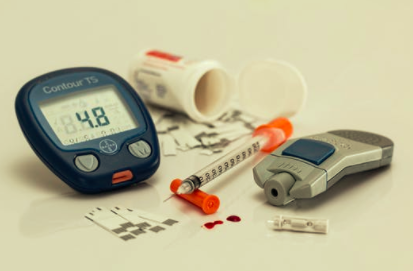Posted: Aug 11, 2017
 Source: Pexels.Com
Source: Pexels.ComA new study suggests that frequent, moderate alcohol consumption might lower chance of developing Type 2 diabetes
Wine has been linked in multiple studies to a reduced risk of developing Type 2 diabetes and related health issues. Now, a group of researchers has found further evidence, suggesting that how frequently you drink may determine if you're getting optimal protective benefits against this disease.
"A number of studies [have] already found that diabetes risk was lower among those with a light to moderate intake as compared to nondrinkers and those with a heavy intake," Janne Tolstrup, who led the research team from the University of Southern Denmark's National Institute of Public Health, told Wine Spectator in an email. "We aimed at testing if drinking patterns, measured in frequency, played a role in this association."
The study, published in the diabetes research journal Diabetologia, used data from the Danish Health Examination Survey, a 2007 survey of the diet, smoking habits, alcohol intake and physical activity of Danish adults. From the data, researchers identified 70,551 diabetes-free participants (28,704 men and 41,847 women) and tracked their self-reported drinking habits and health over the course of five years.
By the end of the study in 2012, 859 of the men and 887 of the women had developed diabetes. Researchers determined that those who had the lowest risk for diabetes were those who drank at moderate—and for women, slightly higher—levels: 14 drinks per week for men and nine drinks per week for women. (American federal dietary guidelines classify moderate drinking as no more than two drinks a day for men and no more than one drink a day for women.)
But it wasn't just the amount per week that seemed to make a difference; those who spread their consumption out over three to four days per week showed a significantly lower diabetes risk, compared with men and women who drank the same amount over the course of more, or fewer, days.
Tolstrup warns against changing your alcohol consumption levels or frequency just because of this study, however. "Our results cannot be used for giving advice to patients or anyone else," she said. "We focus narrowly on a single disease—diabetes—and alcohol is associated with an increased risk of many, many diseases."
In addition to how often individuals drank, the study also looked at which type of alcohol they drank. Moderate wine consumption in particular was associated with a considerably lower risk for both men and women, compared to abstention or infrequent consumption. In the study text, the researchers speculate that this is due to the blood sugar–balancing properties of polyphenols found in red wine. However, that's a subject for further study.
The results for beer and spirits were less conclusive. Beer appeared to lower the risk for men only, and frequent spirits consumption pointed to no association for diabetes risk in men, but a higher diabetes risk for women. This disparity between the results could be chalked up to limited data: 70 percent of all alcohol consumed by women in the study was wine, and very few participants, male or female, reported drinking a significant amount of spirits. The researchers caution that this means the beverage-specific correlations remain unclear.
A more glaring limitation to this study, however, is that it did not distinguish between Type 1 diabetes, which is unpreventable regardless of lifestyle choices, and Type 2 diabetes, which can often be avoided with healthy living. Though the researchers were confident that most of the individuals in the study who developed diabetes indeed had Type 2 (since Type 1 is usually diagnosed during childhood), it is still possible that some individuals had the latter, which may have skewed the results.
Despite that, the study offers positive findings for moderate wine drinkers. Though you obviously shouldn't count on your daily glass (or two) of vino to solve your health problems, having a few drinks spread out over the course of the week, and maintaining other healthy habits, might just help keep diabetes at bay.
By Lexi Williams
August 8, 2017
Source: Winespectator.com
Go-Wine's mission is to organize food and beverage information and make it universally accessible and beneficial. These are the benefits of sharing your article in Go-Wine.com
 Source: Pexels.Com
Source: Pexels.Com
The Wine Thief Bistro & Specialty Wines is a locally owned small business in downtown Frankfort, IL offering world class wines in a relaxed, casual gathering spot for friends and family. Offering world class virtual tastings and touchless carryout.
https://www.twtwineclub.com/aboutus
Go-Wine 25 Great Wineries in US selection prioritizes quality, value and availability.
www.go-wine.com/great-wineries-in-america
Tasting wine is a nice experience, but visiting the places in which wine is made is a magic moment. Available in New York City for touchless pickup.